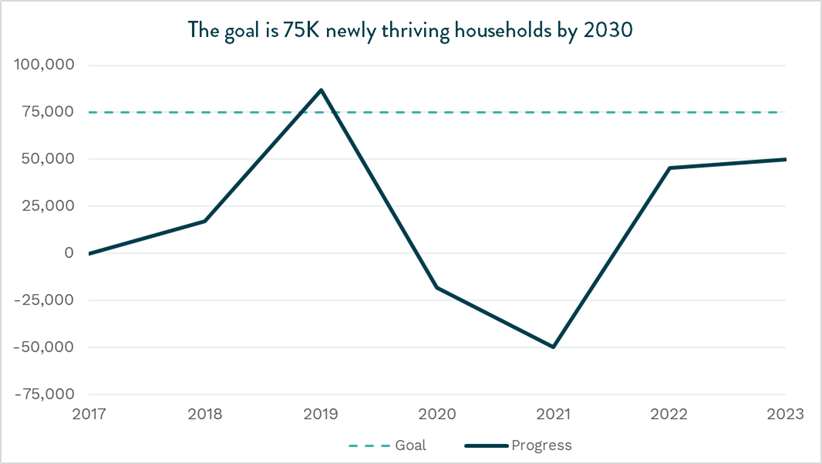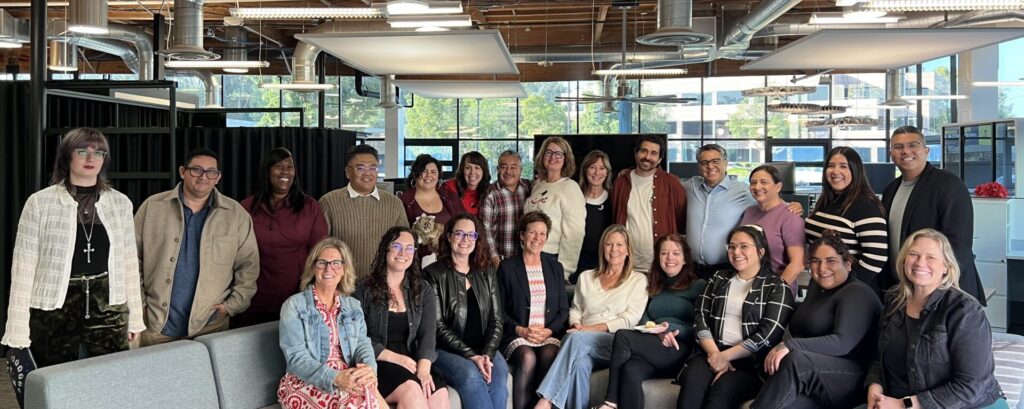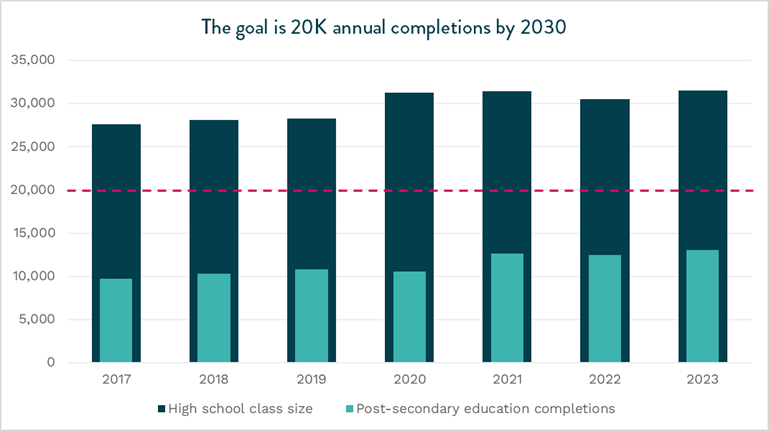To celebrate and inspire the efforts of regional employers, EDC’s Inclusive Growth blog series highlights San Diego companies helping to drive progress on the 2030 Inclusive Growth goals. Below we feature the nationally recognized commuter vanpool service operated by Commute with Enterprise.
Launched in 2018 and informed by a partnership with the Brookings Institution, the Inclusive Growth initiative sets 2030 goals for San Diego related to increasing: 1) the supply of talent, 2) quality small business jobs, and 3) newly thriving households. The goals inform San Diego’s economic priorities and make the business case for economic inclusion.
Decreasing affordability in San Diego has threatened progress toward newly thriving households. Increasing cost pressures disproportionately impact communities of color who historically do not have the same rate of homeownership, a key driver of upward economic mobility. By the end of the decade, EDC estimated the region would need to add 75,000 newly thriving households. As of 2023, San Diego has added 49,916 newly thriving households bringing the total number of San Diego’s thriving households in the region to 610,983.

Commute with Enterprise supports companies and households
Commute with Enterprise operates the nation’s largest vanpool service and provides affordable commuting solutions, which contribute to EDC’s 2030 thriving households goal by reducing travel costs for workers.
Commute with Enterprise established its first vanpool in San Diego 25 years ago, which still operates today and has since served numerous local employers across industries including healthcare, manufacturing, tech and biotech startups, universities, and more.
In San Diego, 20-30 percent of the population commutes more than 60 miles each day. Annually, households in San Diego spend more than $13,000 on transportation costs, representing a 73 percent increase since EDC began tracking progress toward the 2030 goals. As housing costs have increased, households have opted to move to more affordable areas, often further away from their jobs creating longer work commutes.
Companies like Dr. Bronner’s have leveraged Commute with Enterprise to launch a pilot program to support its workforce as well as contribute to a more sustainable future. In addition, SANDAG supports employers and employees through its vanpool program which offers subsidies to offset vehicle lease costs.
Benefits for Dr. Bronner’s:
- Employees pay $50 per month, compared to $285 for solo commuting (IRS, 2024).
- Emergency ride credit of $500 per car provided by SANDAG covers three emergency rides home per year, per participant.
- One vehicle with five employees commuting an average of 25 miles round trip reduces CO2 emissions by more than 10 metric tons per year compared to individual driving.
- Program aims to save 25 parking spaces at Dr. Bronner’s site with future growth.
Commute with Enterprise gives employers a competitive edge when it comes to talent attraction and retention. Riders could save $10,000 per year on average by reducing costs associated with fuel, vehicle maintenance, and more.** Vanpooling can also help reduce traffic congestion as Commute with Enterprise takes more than 45,000 single-occupancy vehicles off the road each day.*** This smart, practical, and employer-led commuting solution helps alleviate rising costs and ultimately supports households.
Join the movement
Progress on EDC’s 2030 Inclusive Growth goals is only achievable with and through the region’s employers who must be committed to scaling innovative and intentional solutions in San Diego. Companies like Cultura are helping to collectively pave the way toward a more inclusive regional economy. Join us:
- Endorse the goals, and be part of the change San Diego’s economy demands.
- Explore EDC’s Mapping Tools.
- See full Inclusive Growth Spotlight series.
To get involved in EDC’s work, contact:

Teddy Martinez
Sr. Manager, Research





